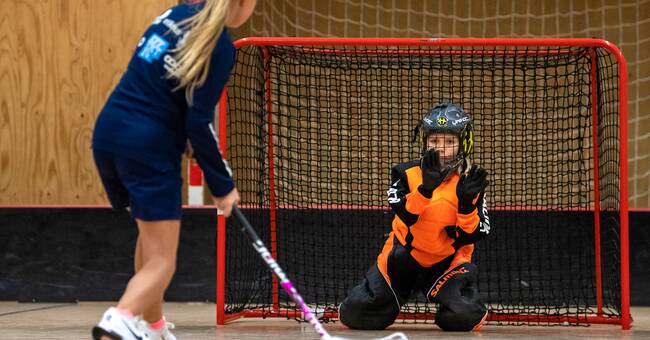In a small survey, TT asked some associations in the largest sports, both team and individual sports, how they felt during the first year of the corona pandemic - about challenges, finances and whether they were allowed to keep their children and young people.
The picture is clear when it comes to certain things such as greatly reduced revenues and challenges in terms of activities that must be carried out infection-free or activities that cannot be carried out at all due to restrictions.
However, there is a difference between sports that have grown during the pandemic and sports that have lost, or risk losing, many active people.
Sports that can be performed outdoors both winter and summer, football and equestrian sports, do not seem to lose active at all.
On the contrary, interest has increased in some places.
"We have almost no dropouts and lots of people in line who want to come in", writes Maria Gudmundsson, operations manager in Klagshamn's equestrian association.
More teams now
The football clubs IFK Eskilstuna and Spånga IS write that they have more players and teams than before the pandemic.
“We are increasing the number of players in general over all age groups 5-19 years.
This is a trend we have seen in recent years thanks to our development work.
But it has become extra clear with the growth of players during the pandemic.
Perhaps football has been able to play an even more important role for children and young people during the pandemic ", writes Spånga's chairman Milou Werth.
Athletics and gymnastics have seen a lot of dropouts and above all that no new ones have been brought in as it has been difficult to start new groups due to the restrictions.
In gymnastics, younger children have refrained from starting because they do not dare to be without parents during training.
Fears dropouts after the season
And the team sports floorball and ice hockey fear that many will quit now after the season, especially older young people who have barely been able to train or play matches throughout the winter season.
“We believe that it will primarily be felt in the age range 15 years and up.
There, we believe that more people quit than normal as they have been hit absolutely hardest by the restrictions ", writes Daniel Carlsson, association consultant in Sirius floorball.
However, he believes that it is possible to get the young people back.
"Yes, but it will probably take two to three years before we possibly recover."
The economy has been and is a major concern for sports during the pandemic.
Activities that provide income for children and youth sports, such as arranging camps, cups, competitions and the club's café activities and other sales, have been canceled.
“We lose about SEK 150,000 per semester.
It's because we can not have our shows and not start up certain groups ", writes Halmstad Gymnastics Association's Chancellor and Sports Director Malin Hedenberg.
Lost 2 million
For the Uppsala club Sirius floorball business, the financial loss is even greater:
“We have lost about 50 percent of our sponsorship income and we have lost some central support that we usually get, less income from arranged camps and of course audience income.
Our economy has been hit hard, it is estimated that we have lost perhaps about 2 million in revenue ", writes Carlsson.
When the pandemic has released its grip and the activities begin to be able to return to normal, the sports hope that they will be able to get back children and young people who have stopped, and that new ones will find their way to sports.
But the challenges are great, including in terms of the economy:
"For the first time this year, we have placed ourselves on a minus budget of almost a six-figure amount," writes the football club Ope IF's sports director Pär Svens.
"Going to be creative"
Other difficult pieces are about non-profit leaders and parental involvement:
“The biggest challenge is to keep the flame burning for those who line up and arrange these events.
We have many dropouts among those who usually help to arrange ", writes Niklas Wiklund, sports manager at Skellefteå AIK athletics.
"Getting the parents' commitment back after the pandemic and the recruitment of new players for the coming season, says Mariana Lindberg, administrative youth coordinator at Frölunda hockey, as a future challenge.
And of course it's about being able to keep, get back and get new children and young people into the sport:
"It simply came to our notice then.
It will be tough, but it is important to be creative and find the motivation for the children ", writes Helge Lauritzen, youth manager in Luleå hockey.

